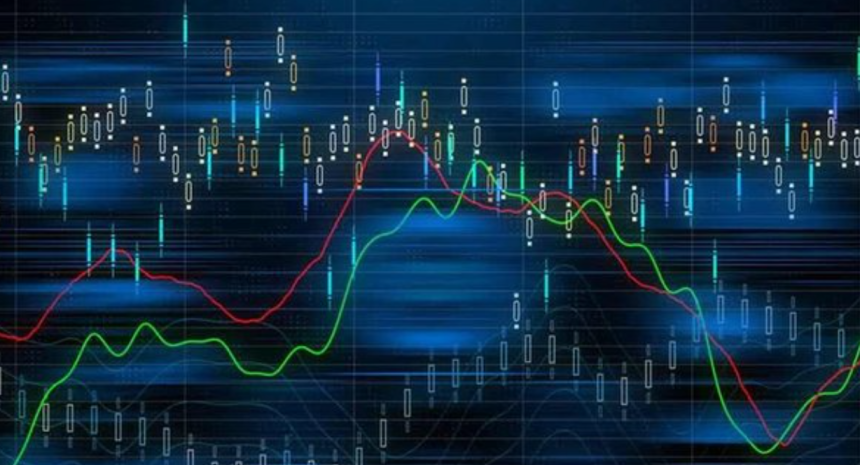In recent years, forex trading has grown significantly in popularity and drawn people from all walks of life, including followers of the Islamic faith. The issue of whether Forex trading is legal under Islamic law, sometimes referred to as Sharia law, is still up for dispute. We shall examine Islamic authorities’ viewpoints and main determinants of Forex trading’s permissibility as we dig into the subtleties of the practice in this post. Throughout our talk, we shall answer the crucial query, “Is Forex halal income?”.
Knowledge of Islamic Principles
It is crucial to consider the tenets of the Islamic religion to understand if Forex trading is permitted in Islam. “Gold for gold, silver for silver, wheat for wheat, barley for wheat, dates for dates, salt for salt, like for like, same for same, hand to hand,” the Prophet Mohammed (peace be upon him) emphasized the idea of “hand to hand” trading. If the sorts vary, sell as long as it is done person to person. This lesson emphasizes the idea of an equitable transaction without using interest (riba).
Haram vs Halal? Untangling the Problem
Determining Is Forex Halal Income (allowed) and haram (forbidden) in forex trading might be difficult. Initially, retail Forex brokers used interest rate differences on overnight-held currency pairs. However, several brokers changed into “Islamic Forex Brokers” and established “Muslim Forex Accounts” that did not charge regular interest rates in response to the rising demand from Islamic traders. These firms boosted commissions on spot Forex deals instead. However, others contend that even with the higher charges, there is still a hidden interest component, which violates Islamic law when used in Forex trading. Additionally, trading Forex futures is considered illegal due to the inherent interest component involved.
Forex Trading Online from an Islamic Perspective
We must look at “hand to hand” commerce and how it is interpreted in the contemporary setting to establish if online Forex trading is permitted in Islam. Face-to-face transactions were common in the past, but thanks to technological improvements, Forex trading now occurs between a trader and a broker. Despite this alteration, it might be claimed that the presence of the trader and the broker meets the criterion of “hand-to-hand” trading following Islamic law. Additionally, the near-instantaneous completion of exchanges fits the requirement that the exchange occurs during the same “sitting.” However, this interpretation raises questions about the permissibility of non-market trades, such as stop or limit orders, which might be considered haram.
Speculation vs Buying: Analyzing Islamic Perspectives
The distinction between speculating and purchasing is one of the main obstacles in assessing the legality of Forex trading. Forex traders often predict the price changes of currency pairings without owning the currencies. This calls into question whether such conjecture is consistent with Islamic law. While speaking with a religious authority is necessary to get the answer to this query, it is worthwhile to consider all possible angles. Islamic law recognizes that people work to better their financial situations and that life is unpredictable. However, gambling is completely prohibited. Some contend that technical analysis is not permitted since it resembles gambling, but speculation based on fundamental analysis is allowed. However, this argument can be criticized as technical analysis plays a significant role in market realities. Balancing speculation and informed decision-making is essential to ensure compliance with Islamic law.
Creating a Muslim Forex Account: Navigating the Gray Areas
Many brokers provide Muslim Forex accounts that do away with riba-related fees and offer a more Sharia-compliant trading environment to make Forex trading compliant with Islamic law easier. Instead of charging interest or charges, these accounts often function under the profit-sharing principle, which divides the gains or losses from transactions between the broker and the trader. In a Muslim Forex account, trades are made without paying swap or rollover fees, regarded as interest-based costs. Instead, administrative costs or higher spreads may be imposed on traders to make up for the lack of overnight interest rates.
In line with the fairness and equal exchange tenets of Islamic finance, the profit-sharing structure ensures that both the trader and the broker have a stake in the success of the trading. But it’s important to understand that not all Muslim Forex accounts brokers provide are indeed Sharia-compliant. Despite promising to offer Islamic accounts, some brokers continue to participate in actions against Islamic law. Muslim traders must thus choose a broker carefully, do due investigation, and ensure that the account complies with Sharia law.
Seeking Guidance from Islamic Scholars
Due to the complexities and varying interpretations surrounding Forex trading in Islam, it is recommended that Muslim traders consult with knowledgeable Islamic scholars or experts in Islamic finance. These scholars can provide guidance and fatwas (legal opinions) specific to individual circumstances, considering the nuances of Forex trading and the evolving nature of financial markets.
Conclusion
Islamic doctrine and interpretations must be carefully considered while discussing the legality of Forex trading in Islam. While some contend that the ideals of free trade and speculation are at odds with the practice of forex trading, others think that, under the right circumstances and following Sharia law, forex trading can be legal. Muslims who want to invest in the forex market should consult qualified Islamic experts for guidance and choose reputed brokers who provide Sharia-compliant trading accounts. The choice to engage in Forex trading ultimately lies with the individual and their religious views; thus, while making financial decisions, it is crucial to put religious observance and ethical concerns first.














